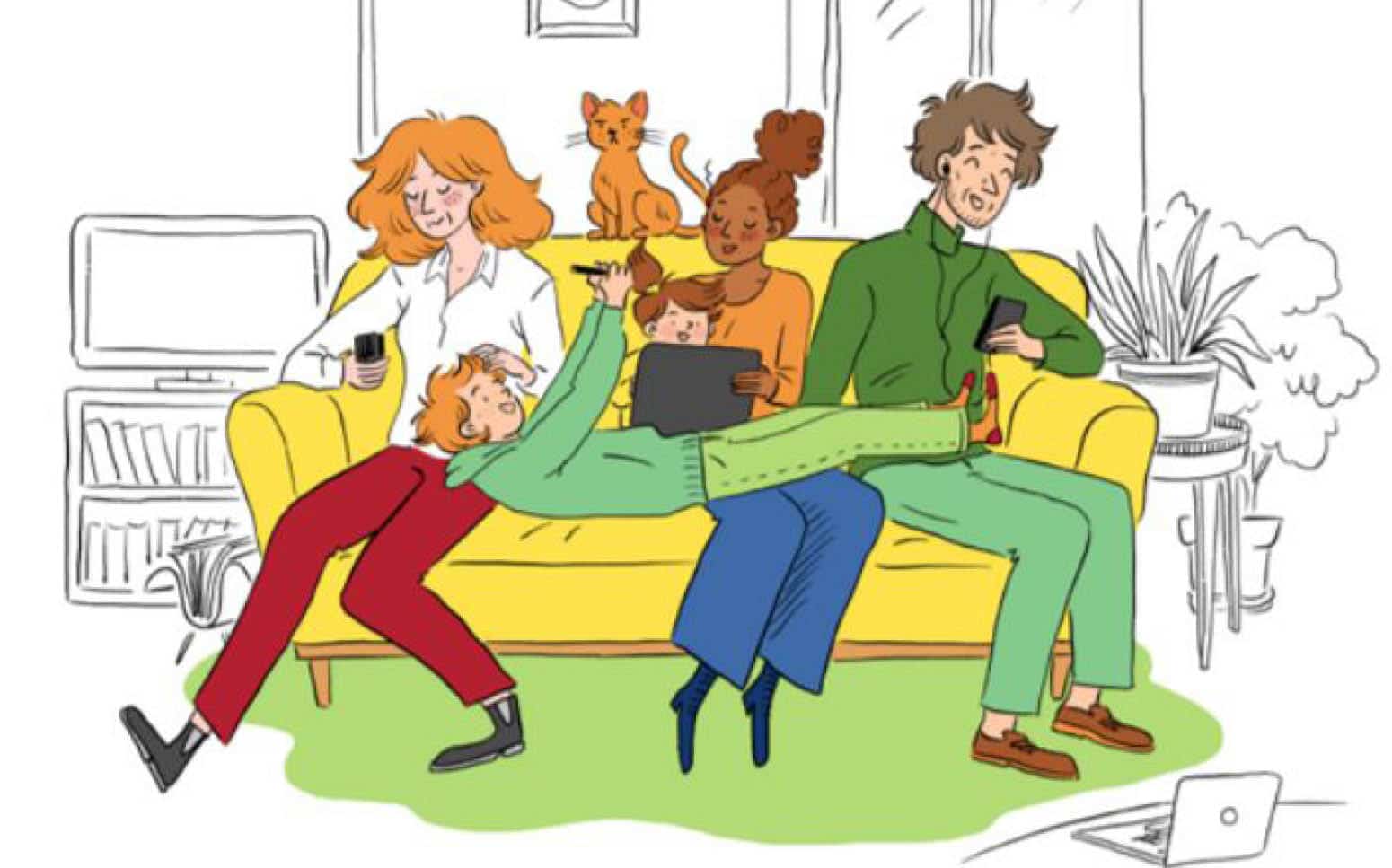Half the child population worldwide can’t physically attend school because of COVID-19 pandemic. This situation has created new risks for teenagers spending more time on Internet and social networks. UNICEF, in a press release dated April 15, 2020, alerted parents and governments on the multiplication of online sexual pedophiles. The usual number of 750,000 online sexual predators permanently surfing on the web to seek connection with children has considerably increased since the beginning of lockdown.
Because teenagers currently spend much more screen time for their extracurricular schooling activities, it is of paramount importance to make them aware of the digital risks, not only to promote good practices but also to help them know how to react in case of online sexual harassment. « Life for millions of children is temporarily reduced to staying home in front of computer screens. We must help them comprehend this new reality » said Henrietta Fore, UNICEF’s Chief Executive Officer.
5 pieces of advice for a better family co-existence with computer screens
1/ During this special period it may prove useful to review or establish new rules on the use and time spent on screens (TV, computer, video games, tablet, smartphone…). In consultation with your children, pending their age, you can fix limits taking their needs and desires into account. Trick: « FamNum » is a customizable application enabling both parents and children to build their « made-to-measure » digital charter.
2/ Make sure that your children’s devices are equipped with updated antivirus programs. Also available are parental control software (for instance « parents around ») to screen Internet contents (pornography, violence…) or restrict their schedule and time spent surfing. You can also secure their profile on certain games consoles or TV programs. PEGI / « youth » descriptives are useful to check that contents are adapted.
3/ “Hold the hand” of your youngest, go along with high school students in their Internet exploration, e.g., see which are the best appropriate websites and/or tools to get information, communicate with their friends, research or do their homework. As for the eldest, inform them of signaling and help devices in case they are confronted with illegal contents or behaviors: use Pharos platform or Pointdecontact website. Finally NET ECOUTE is a national, free of charge and anonymous call service for any issue your children or teenagers may be confronted with in their digital use: call 0 800 200 000.
4/ Whenever possible, avoid installing a computer in the children’s room; give them instead access to internet in the living room or in a common space. Make sure they do not use their tablet or smartphone for a long-time span in their room or late at night.
5/ Regularly talk to them about their activities and online contacts – stay tuned in for possible stress or ill-being signs that might be linked with their screen use (addiction, withdrawal, mood change, isolating…)
You can find more advice in the « All-Screen Family Guide » written by CLEMI (Centre for Media and Information Education) or the UNAF Guide (Family Associations National Union).
The 5 questions you want to ask your children to protect them against sexual violence
- Do you feel comfortable to talk with me or a trusted person of what goes on online?
- Did anyone already talk to you in a way that hurt you, threatened you in any way online?
- Have you already heard about adults trying to come into contact with children and force them to send pictures through chats, applications, or games? How do you feel about it?
- Did anyone already ask you or one of your friends’ personal information, like the school you attend, your address, or send them personal pictures (for your eldest you can mention « nudes » pictures of them naked and of more or less intimate parts). How did you feel about it?
- Have you already seen or would like to meet with your online « friends » in real life?
(Source : ECPAT)
For more information on online sexual violence risks and how to protect your children, you can download the brochure written by the Council of Europe “Parenthood in the digital era” à l’ère du numérique ».
Motto: children made aware and empowered parents! Watch for your children’s image reproduction rights! Their pictures should in no way spread on Internet or social networks: these pictures might be accessible to anybody for a limitless timespan. It is easy for ill-intentioned people to make screenshots and keep them or spread them without your consent, including on pornographic pedophiles websites! Following a survey conducted by Microsoft for Safer Internet Day 2020, 4 out of 10 teenagers find that their parents over-expose them on Internet! Favor private sharing with your keens. You can also find out about confidentiality parameters of the contents shared through instant message applications.
